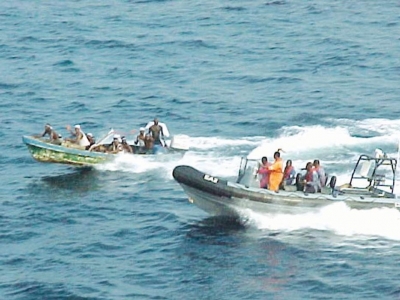How piracy in the Gulf of Guinea is different from that off Somalia
In July last year President Boni Yayi of Benin sent a worried letter to the UN secretary-general. His country was being threatened by the activities of pirates, who were scaring shipping away from the ports on which his country’s revenues depend. He wanted international help of the kind which had been deployed against piracy off the coast of Somalia.
His letter put the issue of piracy off the West African coast onto the world agenda. The attacks continue and still cluster in the vicinity of Benin and its neighbour, Nigeria, but despite UN missions and a Security Council debate, the international community is still unsure of the best way to proceed.
On 6 December Coventry University organized a conference on Maritime Security in the Gulf of Guinea, in collaboration with London’s Chatham House. One thing which emerged very clearly from the sessions was that what is being called piracy in this area is very different from piracy off the East African coast, and the kind of international naval deployment used against Somali pirates is unlikely to help.
In fact Chris Trelawny, deputy director of the Maritime Safety Division at the International Maritime Organization (IMO), suggested that most of what was going on in West African waters was not really piracy at all, within the meaning of the international conventions. “Piracy is defined as happening ‘outside the jurisdiction of any state’, so outside 12 miles is piracy. If it’s inside 12 miles we classify that as armed robbery against ships. The difference is jurisdiction. Piracy is a universal crime and states have an obligation to intervene. Inside 12 miles it is the coastal state’s responsibility.”
Of the attacks which have been reported to IMO over the past 10 years, only a minority, 108, have happened in international waters: 170 were within territorial waters and 270 actually took place in port. So these are crimes taking place within national jurisdiction, and even though some of the coastal states of West Africa have states and judicial systems which are quite weak, there is no void of authority, like that in Somalia.
Using an international naval task force to address the problem is inappropriate in other ways too. Navies can be very good at deterring pirates, or chasing them and recovering stolen weapons and cargo, but they are not designed or trained to collect evidence and process criminals for prosecution.
You may view more information at the official website of the UN Office for the Coordination of Humanitarian Affairs (IRIN news) by clicking here.
Source: IRIN






























































